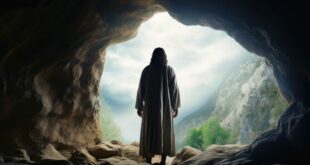In an article by Joshua Kreisel on February 10, 2017, published by Blue Marble Space Institute of Science, titled “How Should Creationism and Evolution Be Taught in Public Schools?” he comes to these conclusions: Creationism is not science, but it should be taught in public schools. Teach evolution as science and teach creationism as philosophy.
Many years ago, teachers taught evolution in my public education high school. Instructors did not mention creation. I often thought: “If evolution is such a settled science, why are they afraid to let students hear about creation? After all, the truth will prevail.” Of course, if students only hear about evolution, why wouldn’t they believe in it?
Evolutionists like to portray creationists as some sort of Neanderthal people who want to revert to the 1800’s. They are unscientific, anti-science, and unfamiliar with modern scientific knowledge and discoveries. They say that if you accept what the Bible states about the history of the universe, you are automatically rejecting science. Nothing could be further from the truth! They get away with this type of slander and falsehood because they fail to distinguish between two kinds of science: operational–observational science and historical–origins science.
Operational science requires knowledge based on observation and repeated testing –performed in our present world. From this science, all technology is derived (computers, automobiles, airplanes, refrigeration and heating systems, etc.). All scientists (both creationists and evolutionists) believe in, practice, and participate in operational science.
Historical – origins science deals with the past. There were no human witnesses to the beginning of the universe. Nothing is repeatable or observable about the beginning of space/time/matter.
If you believe in the “big bang,” where did the first bit of matter come from to produce that “big bang?” Who or what triggered the “big bang?”
If you believe in creation, who observed the first light, night, and day, the atmosphere, the separation of water from land, the first plant life, the first sun, moon, stars, days, seasons, aquatic life, bird life, the first cattle, other beasts, and the first man? (Genesis 1-2). Of course, the only answer to that question would be God. He was the cause, the Creator, and the first observer of each of those events.
Whether in evolution or creation, there were no human witnesses. Creationists and evolutionists get their training at the same universities, from the same professors, and the same or similar books. On both sides of the issue, the scientists have very similar or identical education and experience credentials. They are both looking at the same facts – but interpret them differently. The evolutionist says there is no God. The Creationist says there is God and starts with this basic premise, “In the beginning God created the heaven and the earth.” (Genesis 1:1). This leads to their diverse explanation of origins.
Evolutionists must believe that all things came into being by random chance without any outside intelligence.
The Creationist believes that God planned, designed, and brought into being everything that ever existed or now exists. “Through faith we understand that the worlds were framed by the word of God, so that things which are seen were not made of things which do appear” (Hebrews 11:3). “For thus saith the LORD that created the heavens; God himself that formed the earth and made it; he hath established it, he created it not in vain, he formed it to be inhabited: I am the Lord and there is” (Isaiah 45:18).
In response to the writer, Joshua Kreisel, referred to in the first paragraph, I would say that if evolution is a science – despite being unobservable and unrepeatable – then creation is also science. It is also unobservable and unrepeatable, but it does have an eyewitness: God, who made it happen, and who was there when it happened. If creation is a philosophy, then evolution is also a philosophy. Furthermore, if public schools teach creation, it should be taught by someone who sincerely believes it.
I willingly accept God, who is infinite, eternal, omniscient, and omnipotent, as the Creator and witness of the creation. I willingly accept His Word as authority over the opinions and imaginations of finite scientists who are forced to revise their theories every few years because of new discoveries. God knows what happened, and He never has to revise his story.
 The Bottom Line, Ministries Christian News, Articles, & Poetry
The Bottom Line, Ministries Christian News, Articles, & Poetry 





Hi Dale,
I love how you set this up contrasting both ideologies/belief systems. You pulled it together by illustrating the conflicting differences that are polar opposites. Excellent job, thanks for a great article.
God Bless~
I like the last sentence that God “never has to revise his story.”:In fact, all of history is “his story.”